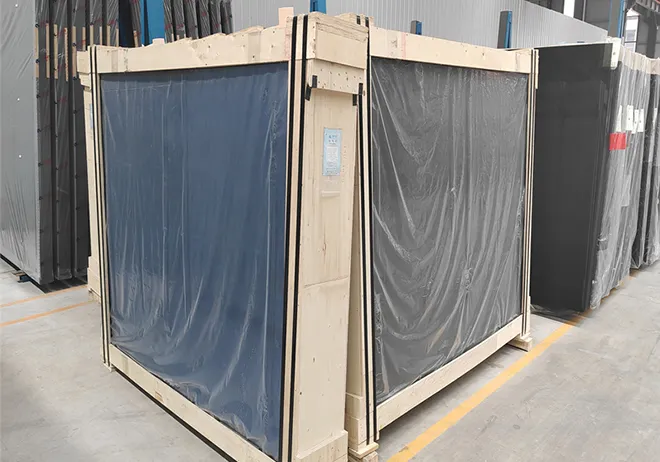Nov . 16, 2024 11:53 Back to list
acid etched glass
The Allure of Acid-Etched Glass A Seamless Blend of Art and Functionality
Acid-etched glass has become a popular choice in contemporary design, embodying a fusion of aesthetics and practicality. This unique process enhances the visual appeal of glass while maintaining its inherent qualities, making it a favored material across various applications, from architectural features to decorative arts.
At its core, acid etching involves the use of a chemical solution to create a frosted appearance on the surface of glass. The process typically begins with the application of a resist material, masking areas that should remain clear. Once the resist is in place, the glass is immersed in an acid solution, which delicately interacts with the exposed surfaces, resulting in a beautifully textured matte finish. This technique allows for both intricate designs and smooth patterns, offering endless possibilities to artists and designers.
The Allure of Acid-Etched Glass A Seamless Blend of Art and Functionality
In addition to its functional benefits, acid-etched glass is a canvas for artistic expression. Designers and artists have embraced this medium, crafting bespoke pieces that showcase intricate patterns, logos, and artworks. The adaptability of acid-etched glass allows for customization, making it an ideal choice for unique installations. From elegant architectural facades to statement artworks in galleries, the versatility of this material knows no bounds.
acid etched glass

The durability of acid-etched glass is another noteworthy attribute. Unlike painted or vinyl-coated alternatives, the etching process is permanent. The glass itself remains robust and resistant to wear, ensuring that the designs withstand the test of time. Additionally, maintaining the beauty of acid-etched glass is relatively easy, requiring little more than regular cleaning with non-abrasive materials.
Sustainability is a significant consideration in modern design, and acid-etched glass fits seamlessly into this ethos. Glass is a recyclable material, and the processes involved in etching can be executed with minimal environmental impact. Many manufacturers prioritize eco-friendly practices, further enhancing the appeal of acid-etched glass for conscious consumers.
The use of acid-etched glass is not confined to just interiors; it is increasingly being incorporated into exterior applications. Architectural firms often utilize this material in curtain walls and facades, striking a balance between structural integrity and visual intrigue. Beyond commercial use, residential projects benefit from this elegant approach to privacy and light management, allowing homeowners to enjoy natural illumination without sacrificing personal space.
In conclusion, acid-etched glass represents a harmonious blend of art and utility. Its capacity to transform ordinary spaces into extraordinary environments while providing practical benefits makes it a beloved choice among designers. As we continue to explore innovative design solutions, acid-etched glass will undoubtedly remain a prominent player in the world of architecture and decoration, captivating audiences with its beauty and versatility. Whether in artistic installations or everyday applications, this remarkable material invites us to experience the world of glass in a new and enchanting way.
-
Safety and Style with Premium Laminated Glass Solutions
NewsJun.24,2025
-
Reinvents Security with Premium Wired Glass
NewsJun.24,2025
-
Premium Float Glass Line for Modern Architecture
NewsJun.24,2025
-
Low Emissivity Glass for Energy-Efficient Architecture
NewsJun.24,2025
-
High-Performance Insulated Glass Solutions for Modern Architecture
NewsJun.24,2025
-
Elevates Interior Style with Premium Silver Mirror
NewsJun.24,2025
Related PRODUCTS














